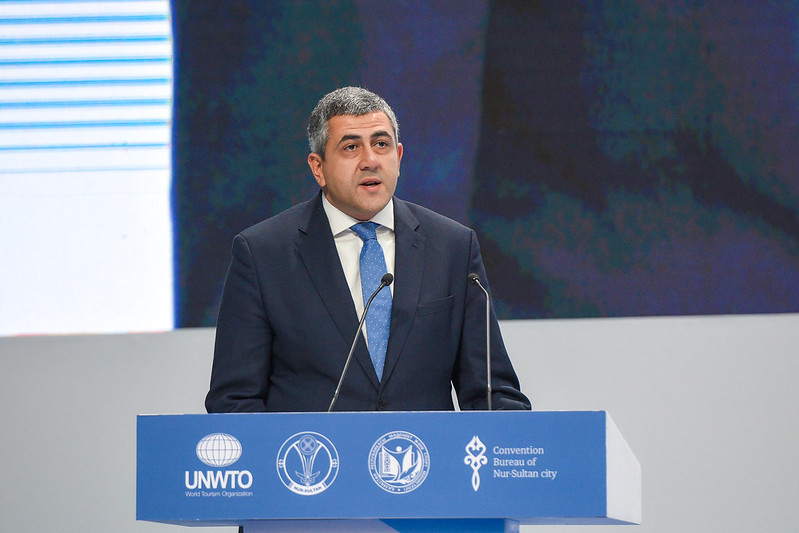
- The European Bank for Reconstruction and Development (EBRD) will partner with World Tourism Organization (UNWTO) to promote inclusive tourism and accomplish United Nations Sustainable Development Goals.
- EBRD President Suma Chakrabarti and UNWTO Secretary-General Zurab Pololikashvili signed a Memorandum of Understanding at the UNWTO Headquarters in Madrid.
- The two institutions will work to improve the tourism sector’s involvement in social, economic and environmental development. They will also focus on training in tourism for job creation and socioeconomic inclusion.
- EBRD and UNWTO will also try to make tourism governance stronger, promote policy dialogue, enable investments and back the increase of Official Development Aid flows to the tourism sector.
- UNWTO Secretary-General Zurab Pololikashvili said: “Tourism has become a central part of the global sustainable development agenda. Strengthening our partnership with the EBRD will help us drive the sector forward, deliver change in the tourism climate and digital economy and help guide the growth of tourism in a responsible and inclusive manner for the benefit of all. We are happy to be your tourism intelligence and action partner.”
- Australia’s South West Sustainable Tourism Observatory has joined the UNWTO’s International Network of Sustainable Tourism Observatories as an official member.
PRESS RELEASE
The EBRD and the UNWTO are joining forces to strengthen sustainable and inclusive tourism as a tool for achieving growth and development.
Under an MoU, signed by EBRD President Suma Chakrabarti and UNWTO Secretary-General Zurab Pololikashvili at the UNWTO Headquarters in Madrid, the two institutions pledge to work together in promoting and fostering tourism for the achievement of the 2030 Agenda and the 17 UN Sustainable Development Goals. The MoU is also aligned with the new property and tourism strategy the EBRD published yesterday.
In particular, the EBRD and UNWTO are looking for ways to strengthen the role of the tourism sector for social, economic and environmental development for regional integration and economic diversification.
Fostering education and training in tourism for job creation and socioeconomic inclusion, by adopting the best practices to increase and improve skillsets in the sector, is a key priority for both the EBRD and UNWTO.
The two institutions will also look to strengthen tourism governance and institutions, promote policy dialogue at national and regional level on matters of common concern, facilitate investments and advocate for the increase of Official Development Aid flows to the tourism sector, including through UNWTO.
UNWTO Secretary-General Zurab Pololikashvili commented: “Tourism has become a central part of the global sustainable development agenda. Strengthening our partnership with the EBRD will help us drive the sector forward, deliver change in the tourism climate and digital economy and help guide the growth of tourism in a responsible and inclusive manner for the benefit of all. We are happy to be your tourism intelligence and action partner.”
EBRD President Suma Chakrabarti said: “I am very delighted to be working with UNWTO to promote sustainable and inclusive tourism across the EBRD regions. Travel and tourism represent a vitally important and fast-growing sector of the global economy, and can benefit poorer, more remote regions, opening up job opportunities, promoting economic inclusion for all and facilitating the transfer of valuable skills. These are all objectives central to the EBRD’s mission.”
The EBRD and UNWTO are longstanding partners. In 2015, the two institutions signed an agreement in the framework of the EBRD’s commitment for supporting inclusive and sustainable tourism in the economies where the Bank invests, particularly in the southern and eastern Mediterranean (SEMED) region and the Western Balkans.




